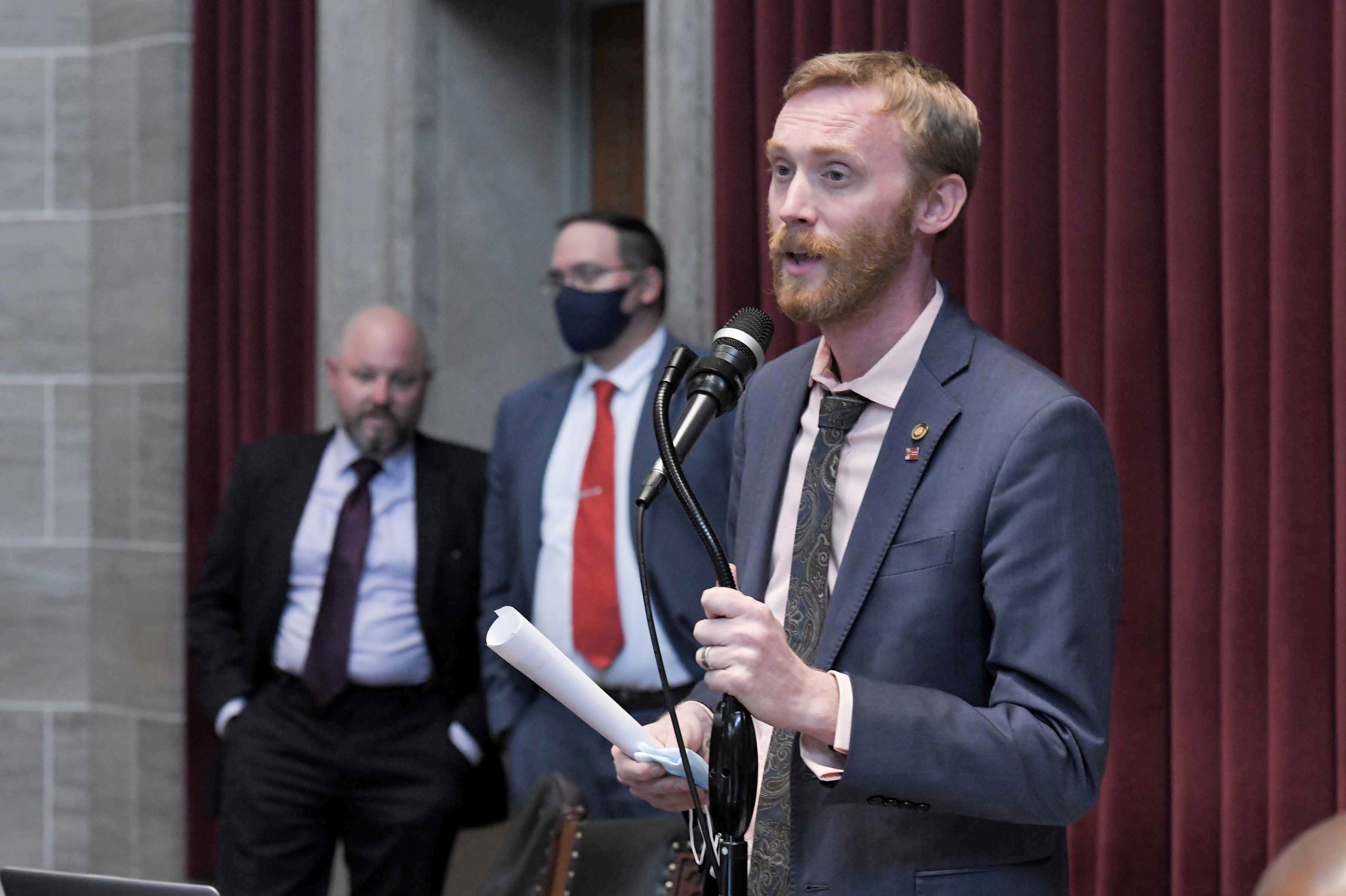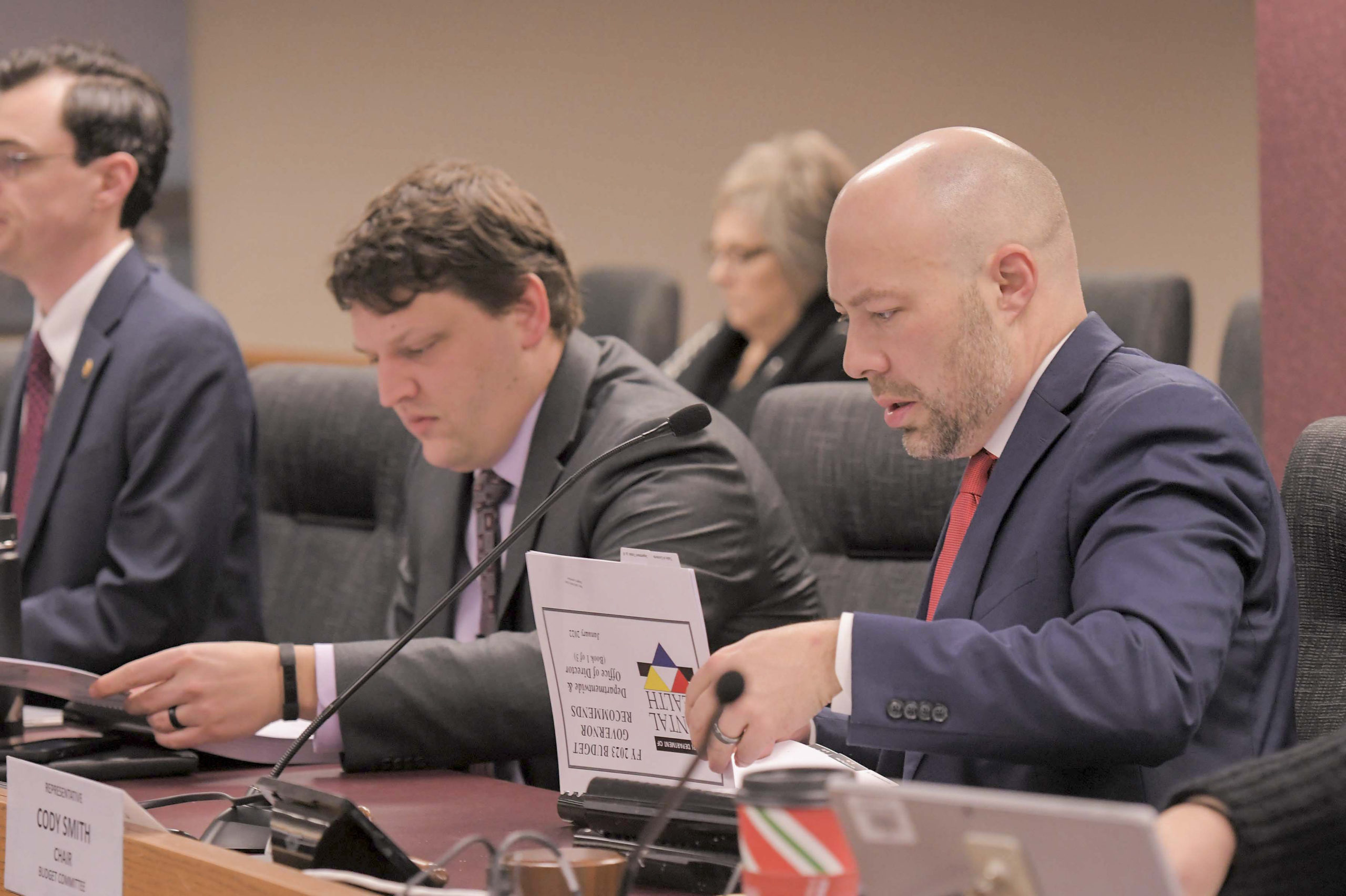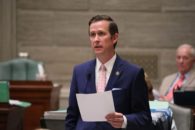JEFFERSON CITY, Mo. — After four hours of debate, the House perfected a supplemental appropriations bill that included a pay raise for state workers — albeit, stripped back from the full proposal recommended by the governor.
HB 3014 made cuts to Gov. Mike Parson’s proposed $15 per hour increase for state workers across the board. Instead, only “direct care” agencies or employees will have their pay upped to $15 per hour or see a 5.5 percent cost of living adjustment (COLA), whatever is higher, House Budget Chair Cody Smith said.
Non-direct care agencies and employees would have their salaries increased to $12 per hour or see a 5.5 percent increase, whichever is greater, he said.
The bill was ultimately perfected 112-8 with 30 Democrats voting “present.”
“We’re allocating 95 percent of the governor’s recommendations,” Smith said on the floor Wednesday.
But Democrats are incensed by the change to Parson’s recommendations. They insisted the pay increase did not go far enough to accommodate state workers who are among the lowest-paid in the nation.
“This is unacceptable,” Rep. Peter Merideth, the ranking minority member of the Budget Committee, said. “It’s a crisis. We have to deal with it now.”

Merideth, a Democrat from St. Louis, attempted to restore the cuts to the governor’s proposal through an amendment. But despite receiving support from his colleagues — as well as six Republicans — it was defeated.
Reps. Shamed Dogan, Travis Fitzwater, Bill Kidd, Andrew McDaniel, Shane Roden, and Rudy Veit were the six Republicans who voted with Merideth.
In an interview, Smith defended the change, saying it would save the state about $7 million and give departments the latitude to determine just who is considered to be in a direct-care role or adjacent enough to receive that level of increase.
“With the $15 per hour, I think there could be some opportunity for that to create an unfair advantage for the state workforce over the private side, especially in our more rural areas of the state,” Smith said. “We don’t want to unintentionally create unfair competition among the state workforce and private workforce.”
Smith argued there are some jobs in the state workforce that are “truly what you would consider minimum wage jobs … where you come into the workforce with no skills or relatively low skills or experience and work your way through the ranks.”
“To start those folks above the statewide minimum wage creates an unfair advantage for the state over private employers,” Smith said.
“It’s most of what the governor requested, just a slightly different take on it,” he added.
A spokesperson for the governor declined to comment on the changes made to Parson’s proposal.

But Rep. Rasheen Aldridge, a Democratic member of the Budget Committee, called the change “shameful.”
“It’s targeted to only certain state employees, which I think is ultimately wrong,” Aldridge told The Missouri Times. “I think we had a huge opportunity to tell our state workers in a tough time when they’ve been dealing with the pandemic that we understand that we’re not paying a liveable wage — and we’re talking about the hardest working men and women in our state who keep our state going, from transportation to parks.”
“From custodial work all the way up, no one is doing minimum work,” Aldridge, a Fight for 15 activist, added. “They’re doing two or three jobs just to survive.”
During a Budget hearing earlier this week, Lt. Gov. Mike Kehoe said he supported the governor’s recommended pay increase. He recounted seeing a state employee using food stamps at a local grocery store.
Parson had originally asked lawmakers to approve the salary increase by the beginning of February, touting the state’s economic success and budget surplus during the State of the State address earlier this year.
His plan was projected to cost more than $90 million.
During floor debate Wednesday, the bill saw the first motion to move the previous question (PQ) of the session in the lower chamber.



















